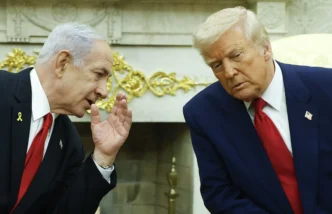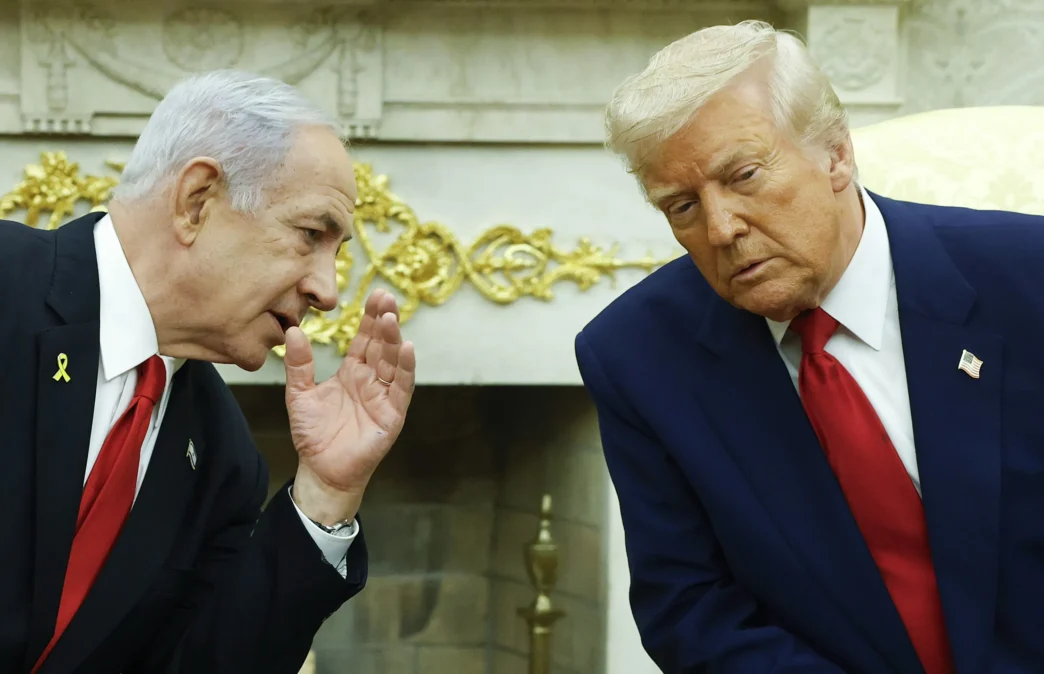The United States, long viewed as the primary external broker in the Israeli-Palestinian conflict, appears to have ceded much of its decision-making to Israel when it comes to Gaza. Analysts argue that the Trump administration’s approach, and the policy inertia that followed, reflects not so much a U.S. strategy as a willingness to let Israeli Prime Minister Benjamin Netanyahu set the terms of engagement.
Outsourcing Policy to Israel
Traditionally, Washington’s role in the Middle East has been that of an arbiter—pushing for negotiations, attempting to balance Israeli security concerns with Palestinian aspirations, and managing regional stability. But under the Trump administration, this balancing act shifted. Policies such as moving the U.S. embassy to Jerusalem, cutting aid to the Palestinian Authority, and supporting the normalization agreements between Israel and Arab states left Palestinians sidelined.
Instead of articulating a long-term U.S. vision for Gaza, the administration’s stance amounted to endorsing Israel’s actions, whether in military operations or economic blockades. This dynamic, analysts contend, effectively turned U.S. policy into an extension of Netanyahu’s government.
A Policy Vacuum on Gaza
What’s striking, observers note, is the absence of a comprehensive U.S. plan for Gaza. Beyond occasional humanitarian gestures or rhetorical calls for calm, the White House has not advanced concrete proposals for addressing Gaza’s long-term challenges: high unemployment, infrastructure collapse, and political paralysis between Hamas and the Palestinian Authority.
“From both a bird’s-eye view of geopolitics and a worm’s-eye view of daily life in Gaza, the U.S. seems absent,” said one Middle East scholar. “What exists is de facto delegation—Washington defers to Israel’s calculus, even when it risks broader instability.”
Netanyahu’s Calculations
For Netanyahu, this U.S. posture has been advantageous. It has allowed him to tighten Israel’s military and political grip over Gaza without significant international pushback. Israeli airstrikes, blockades, and restrictions on goods are often framed as security necessities, and with Washington echoing these justifications, little external pressure exists for Israel to alter course.
Critics argue that this arrangement entrenches the humanitarian crisis in Gaza while undermining prospects for a two-state solution. By sidelining Palestinian voices, the U.S. effectively narrows the policy conversation to Israel’s security imperatives alone.
Regional Implications
The consequences extend beyond Gaza. Arab states that normalized ties with Israel under the Abraham Accords did so largely without conditions related to Palestinian statehood, reflecting a diminished U.S. interest in pressing Israel on concessions. Meanwhile, Iran and other regional actors have seized on Gaza’s plight to bolster their own influence, filling the vacuum left by the absence of a serious U.S. or international initiative.
A Legacy of Strategic Drift
The Trump administration’s posture toward Gaza may be remembered less as a deliberate strategy than as a policy of abdication. While it secured closer alignment with Israel, it left unresolved—and in many ways worsened—the core issues that perpetuate conflict.
Successive administrations face the challenge of reversing this drift. Without a credible U.S. role in balancing security and humanitarian needs, Gaza risks becoming an ever more destabilizing flashpoint, with repercussions across the Middle East.
The Bottom Line
By allowing Netanyahu’s government to dictate the Gaza agenda, the U.S. has effectively outsourced one of the most sensitive aspects of its Middle East policy. The immediate result has been closer ties with Israel, but at the expense of a broader peace vision and long-term regional stability. Whether Washington reasserts itself as a policy shaper—or continues to let Israel lead unilaterally—will determine the trajectory of the conflict for years to come.
















